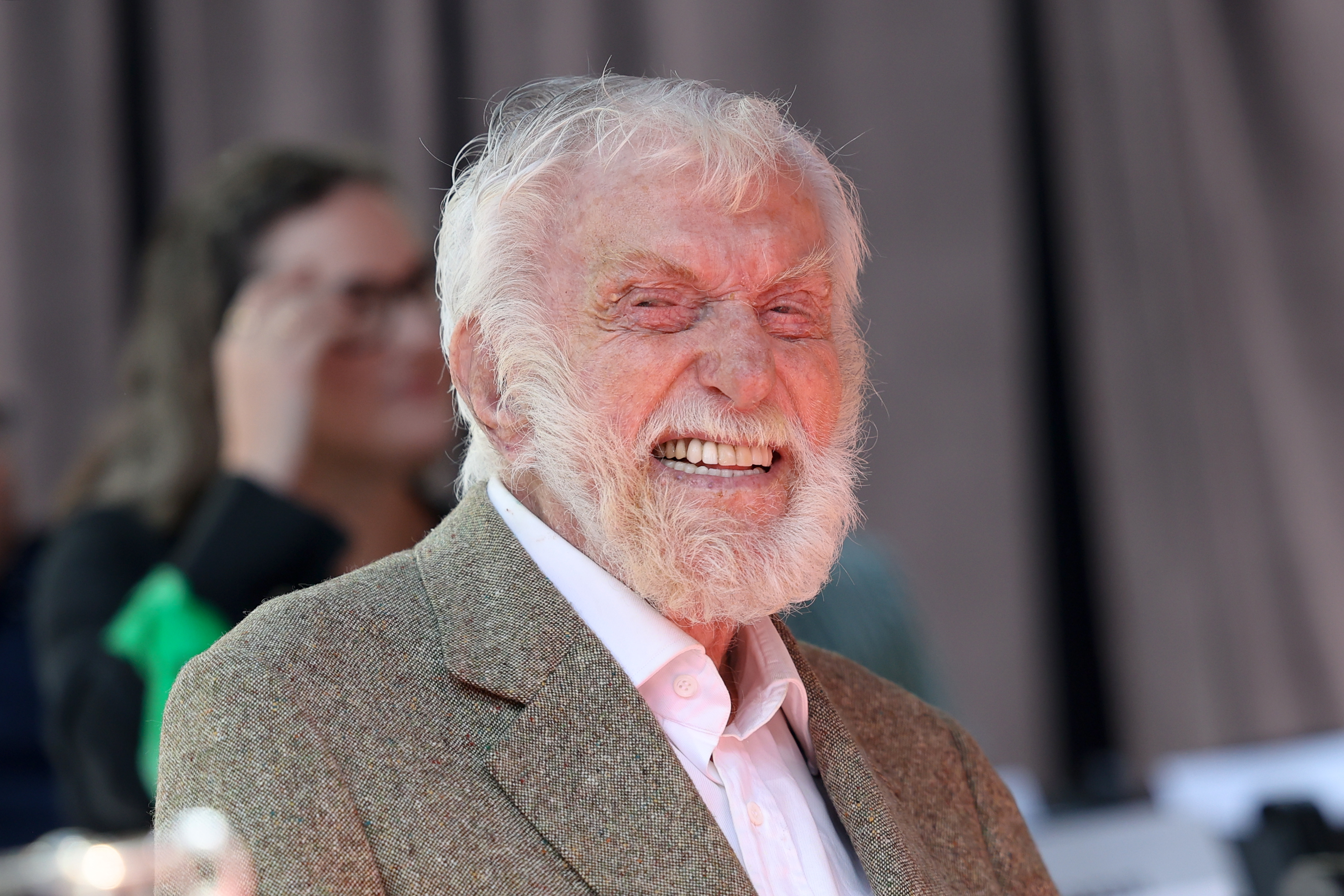
Daniel Wright Jr. experienced a breakthrough in his mental health thanks to a doodle he made that later turned into a tattoo business offering free ink for veterans.
Wright, a Purple Heart recipient and a retired U.S. Army Staff Sergeant, received in-patient treatment in 2013 for post-traumatic stress disorder and anxiety.
"I wasn't participating with them because I didn't trust them," Wright tells TODAY.com of his care team.
He eventually decided to start doodling during sessions to pass the time.
"Next thing you know, they were like the meeting is over. And I'm like, 'OK, that's crazy. It went by so fast.' And they were like, 'Today was a great day for you. You were talking. You were expressing yourself.' I found out the whole time I was drawing, I was talking and engaging with the people," Wright recalls.
After he completed his in-patient care, Wright says he went to get a tattoo. He had a good experience with the artist, who was also a friend who encouraged him to become a tattoo artist.
Get Tri-state area news delivered to your inbox. Sign up for NBC New York's News Headlines newsletter.
"Maybe I can do this," Wright remembers thinking to himself. "I knew (that) I knew how to draw. I've been drawing since I was probably 2 years old. I bought a little kit. Never turned around."
Health
Wright has more than 100 tattoos himself and has given out thousands to people across the country to advance his mission of bringing mental wellness through tattoos.
His business, Marzmade Mobile Tattoo Studio, is based in New Jersey. He has a parlor in his home and a converted bus he uses to bring tattoos to people. He's also on TV, with appearances in "Power Book III: Raising Kanan" and "Black Ink Crew: Chicago."
Wright is among a cohort of veterans living with PTSD and anxiety. A 2024 study published in the Journal of Psychiatric Research estimated that 3 in 10 U.S. veterans report anxiety symptoms. According to the U.S. Department of Veterans Affairs, that 7% of veterans experience PTSD at some point in their lives.
For fellow veterans, Wright offers free tattoos so they can experience the lightbulb moment he did through art. He has given away more than 1,000 tattoos to them.
"I saw the correlation of tattooing and trauma, and I know about the trauma we have, especially when we get out," Wright says. "I have tattoos over battle scars, and I've also tattooed over battle scars."
Wright says most of the veterans he inks get tattoos in honor of their military service, and they trade war stories during the session.
“I can talk to you about the things you’re going through because I’ve been through it ... as well as giving you a dope tattoo,” he adds.
Wright’s approach is clinically sound, experts say.

'Reintegrate that painful memory'
Chase Cassine, a licensed clinical social worker in New Orleans who has worked with veterans, describes Wright's work as "reintegration through tattoo therapy."
"This is beneficial to both the tattoo artist and the person receiving the tattoo," Cassine tells TODAY.com
"The tattoo is a symbol. The tattoo can also symbolize being a part of a group, being a part of a status, being able to commemorate a memory. But, also in that memory may be (another) painful memory. So you talk about what has happened and you can reintegrate that painful memory to a meaningful memory as a way to take back your power," Cassine explains.
Tattoo therapy with Wright was particularly effective for Matt Davies, a Navy veteran who received a tattoo from Wright in 2020. Davies, who lives with PTSD, says he previously saw licensed therapists whom he did not find helpful.
“It felt more comfortable to talk with Daniel about the things that had happened to me than ... with a licensed therapist because most therapists that you go to with the VA have no military background, so you’re speaking one language and they’re speaking another,” Davies says.
“It does get frustrating when you’re trying to convey what is happening, and you’re using terms that only a service member would use,” Davis adds. “This makes the ability to talk about it so much easier.”

'Mimicking wartime adrenaline'
There's also the physical side of getting a tattoo that helps, Wright and Cassine say.
"In the process of (getting) that tattoo, your adrenaline is so high that it's mimicking wartime adrenaline," Wright says. "When you were in wartime, you saw things. You smelled things. You heard things. Just think about it like this lid was opened and all of these smells and sensory things were put into your jar, and then it closed when you left wartime. And you've never had that much adrenaline to open it up again. I'm giving you that adrenaline to open a jar, and we're talking about it to help release it."
Davies says tattoo therapy helped him unlock "answers" he hadn't previously known.
“When I went to meet with Daniel, we started talking about our time in the service, which led into a deeper conversation as to the things that we miss, the traumas that are associated with being in the service and also acclimating to life outside of the military,” Davies says.
“I believe my session was around five hours long, and we talked the entire time. It was very profound because I was able to finally feel like I got answers and not feel so alone or isolated with my feelings,” Davies adds.

Raising awareness of tattoo therapy
Wright mainly uses social media and digital platforms to advertise the free tattoos that he offers veterans. He has interested veterans enter a raffle and the winner gets the tattoo.
Davies says social media is how he heard about Wright. Davies won the raffle and they “hit if off” from there.
Cassine says tattoo therapy is a novel way to have impactful mental health conversations that actually land with the person.
"It may not be traditional, and sometimes we've got to get out of that framework, too. They have found therapeutic ways to help them cope with stress, with faith, with love, with trauma — tattoo therapy, speaking therapy, all these different things," Cassine says.
There are other shops offering tattoo therapy, such as Tattoo Therapy BK and Therapy Ink NYC.
But Wright appears to be one of the only artists offering free tattoos for veterans.
“Everybody says the military is a band of brothers and sisters, and that is true,” Wright says. “But, when you get out or retire, it’s like you’re out of sight, out of mind. Everybody forgets about you. It’s not the same camaraderie you had every day. And that is one of the biggest traumas we deal with. I started bridging that gap."
This story first appeared on TODAY.com. More from TODAY:



